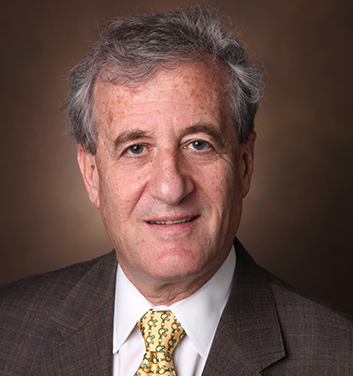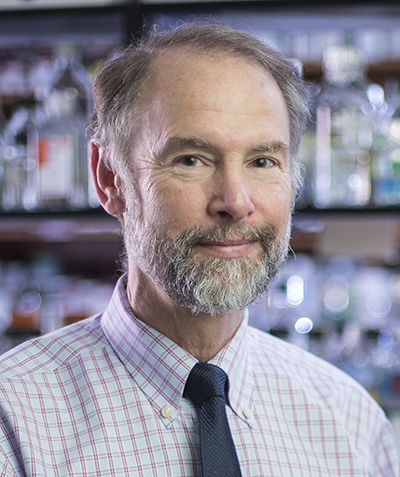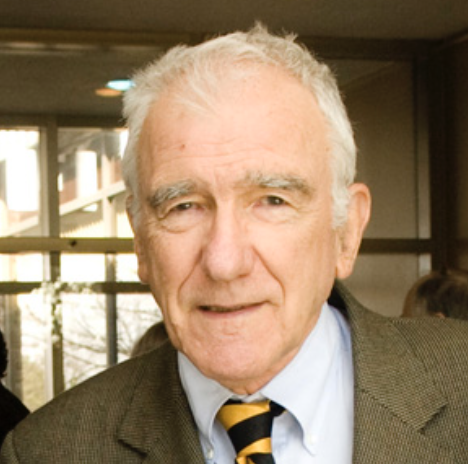Research, News & Discoveries
-

Study identifies human proteins with segments devoid of genetic variation
By Leah Mann Charles Sanders, Ph.D. The lab of Charles Sanders, professor of biochemistry and the Aileen M. Lange and Annie Mary Lyle Chair for Cardiovascular Research, published a study in Protein Science identifying all human proteins that have at least one segment that does not have… Read MoreJan. 27, 2023
-

The Expert from Nowhere
To understand a protein’s structure is to understand its function, says structural and chemical biologist Jens Meiler, PhD, distinguished research professor of Chemistry. It can take a PhD student up to five sleep-deprived years to determine the structure of a single protein, and of the 20,000 human proteins, only about… Read MoreJan. 26, 2023
-

CRISPR screen identifies role for a specific protein in insulin secretion
By Leah Mann Wenbiao Chen, Ph.D. The labs of Wenbiao Chen, associate professor of molecular physiology and biophysics, and Irina Kaverina, professor of cell and development biology, recently published a study in Molecular Metabolism focused on detecting genes that regulate insulin secretion. The authors demonstrated a new… Read MoreJan. 25, 2023
-

Study identifies potential new approach for treating lupus
Targeting iron metabolism in immune system cells may offer a new approach for treating systemic lupus erythematosus (SLE) — the most common form of the chronic autoimmune disease lupus. A multidisciplinary team of investigators at Vanderbilt University Medical Center has discovered that blocking an iron uptake receptor reduces disease pathology… Read MoreJan. 19, 2023
-

New screening method could pave the way for future cancer drug discoveries
The laboratories of Brian Bachmann, professor of chemistry, biochemistry and pharmacology, and Jonathan Irish, associate professor of cell and developmental biology and pathology, microbiology and immunology, have developed a method to discover new small molecules that may kill cancer cells by working through the body’s immune system. The method is… Read MoreJan. 18, 2023
-

Vanderbilt biochemists join international researchers in discovery of the first new antibiotic for urinary tract infections in more than 20 years
Neil Osheroff, John Coniglio Chair in Biochemistry and professor of biochemistry and medicine, is part of an international research collaboration resulting in what is on track to be the first new antibiotic treatment for uncomplicated urinary tract infections in more than 20 years. “We now have a direct path connecting… Read MoreJan. 18, 2023
-

Roden honored for his leadership in precision medicine
Dan Roden, MD, Senior Vice President for Personalized Medicine at Vanderbilt University Medical Center, will receive the PMWC 2023 Pioneer Award Jan. 27 during this year’s Precision Medicine World Conference. Approximately 2,500 people from more than 30 countries are registered for the three-day meeting, to be held in Santa Clara,… Read MoreJan. 12, 2023
-

VUMC researchers upend dogma about vasopressin production
It’s time to revise the textbook entry for vasopressin production. For 100 years, it has been thought that vasopressin — a hormone that regulates water and blood pressure homeostasis — is only produced in the brain. Now, Vanderbilt University Medical Center investigators have discovered that vasopressin is also produced in… Read MoreJan. 12, 2023
-

Vanderbilt mourns loss of renowned scientist Exton
John H. Exton, MBChB, MD, PhD, professor of Molecular Physiology and Biophysics, emeritus at Vanderbilt University, whose research provided fundamental insights into how many biologically active compounds control cellular physiology, died Dec. 18. He was 89. Dr. Exton was a member of the Vanderbilt University faculty from 1964 until his… Read MoreDec. 29, 2022
-

Basic Sciences researchers show their artistic talents at winter showcase
From beautiful original compositions to witty comedy, the Office of Biomedical Research Education and Training gave students, postdocs, staff, and faculty the opportunity to step into the spotlight during its fourth annual winter showcase on Dec. 15 at the Blair School of Music. “These are brilliant students [and community members]… Read MoreDec. 20, 2022